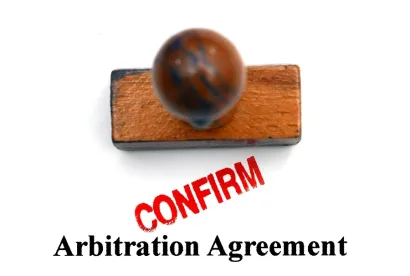In September 2016, the U.S. Office of the Solicitor General urged the U.S. Supreme Court to rule that arbitration agreements that prohibit employees from pursuing work-related claims on a class action basis are unlawful because they violate the National Labor Relations Act (NLRA). On June 16, 2017, however, the federal government filed a brief taking the exact opposite position, namely that class-action waivers in arbitration agreements should be enforced. This flip-flop in position is quite extraordinary, even with the change in administrations, making this important case one to watch next term. Here are the issues at stake for employers.
NLRB Appeal of Murphy Oil Case
With its controversial 2012 decision in the D.R. Horton case, the National Labor Relations Board (NLRB) has advocated that arbitration agreements between an employer and its employees that ban employees from pursuing work-related claims as a class or group are unenforceable as they violate employees’ rights to engage in concerted activities for their mutual aid and protection under the NLRA. In 2013, the Fifth Circuit Court of Appeals overturned the NLRB’s ruling in D.R. Horton, holding that the use of class action procedures is not a “substantive right” of employees under the NLRA and therefore, arbitration agreements with class-action waivers should be enforced under the Federal Arbitration Act (FAA).
The Fifth Circuit rejected the NLRB’s view on class-action waivers a second time when it ruled that Murphy Oil, which operates more than 1,000 gas stations in 21 states, did not commit an unfair labor practice when enforcing its arbitration agreements that required employees to resolve work-related claims on an individual basis. Two other appellate circuits – the Second and Eighth – have agreed with the Fifth Circuit’s position that class-action waivers are enforceable. Other circuits, however, including the Ninth and Seventh, have ruled in favor of the NLRB on this issue, creating inconsistencies concerning whether such agreements are lawful.
In the closing days of the Obama administration in September 2016, the Office of the Solicitor General (which is tasked with conducting government litigation before the Supreme Court) filed a petition with the Supreme Court asking it to decide the validity of class-action waivers in arbitration agreements through appeal of the Murphy Oil case. The government argued on behalf of the NLRB that such agreements were unlawful. Employers Ernst & Young and Epic Systems also sought Supreme Court review of their adverse decisions from other circuits on this same issue. In January 2017, just days before President Trump’s inauguration, the high court agreed to hear all three consolidated cases in its next term.
The NLRB Left To Go It Alone
When the United States filed its brief with the Supreme Court last week changing positions, it did so as a “friend of the court.” The June 16th brief is signed by lawyers from the Solicitor General’s office but not by any NLRB lawyers – although both offices were signatories to the original petition seeking review.
Under the Court’s briefing schedule, briefs from the NLRB and the employee-petitioners are due on August 9, 2017. According to a short statement on the NLRB’s website, the Solicitor General’s Office “authorized the National Labor Relations Board to represent itself” in the Murphy Oil case before the Supreme Court. This sets up a unique situation for oral arguments this fall when a lawyer from the Solicitor General’s office may argue against a lawyer for another federal agency, the NLRB.
What It Means For Employers
The change in position by the Solicitor General’s Office could lend additional weight to the employers’ arguments in favor of upholding class-action waivers in arbitration agreements. It is a business-friendly position that reins in the extensive reach of the NLRB in recent years. If the Supreme Court rules in favor of employers and against the NLRB, businesses will be able to enforce arbitration agreements containing class action waivers nationwide. We will keep you posted as this case proceeds to a ruling, which could be published about this time next year. Stay tuned!



 />i
/>i

